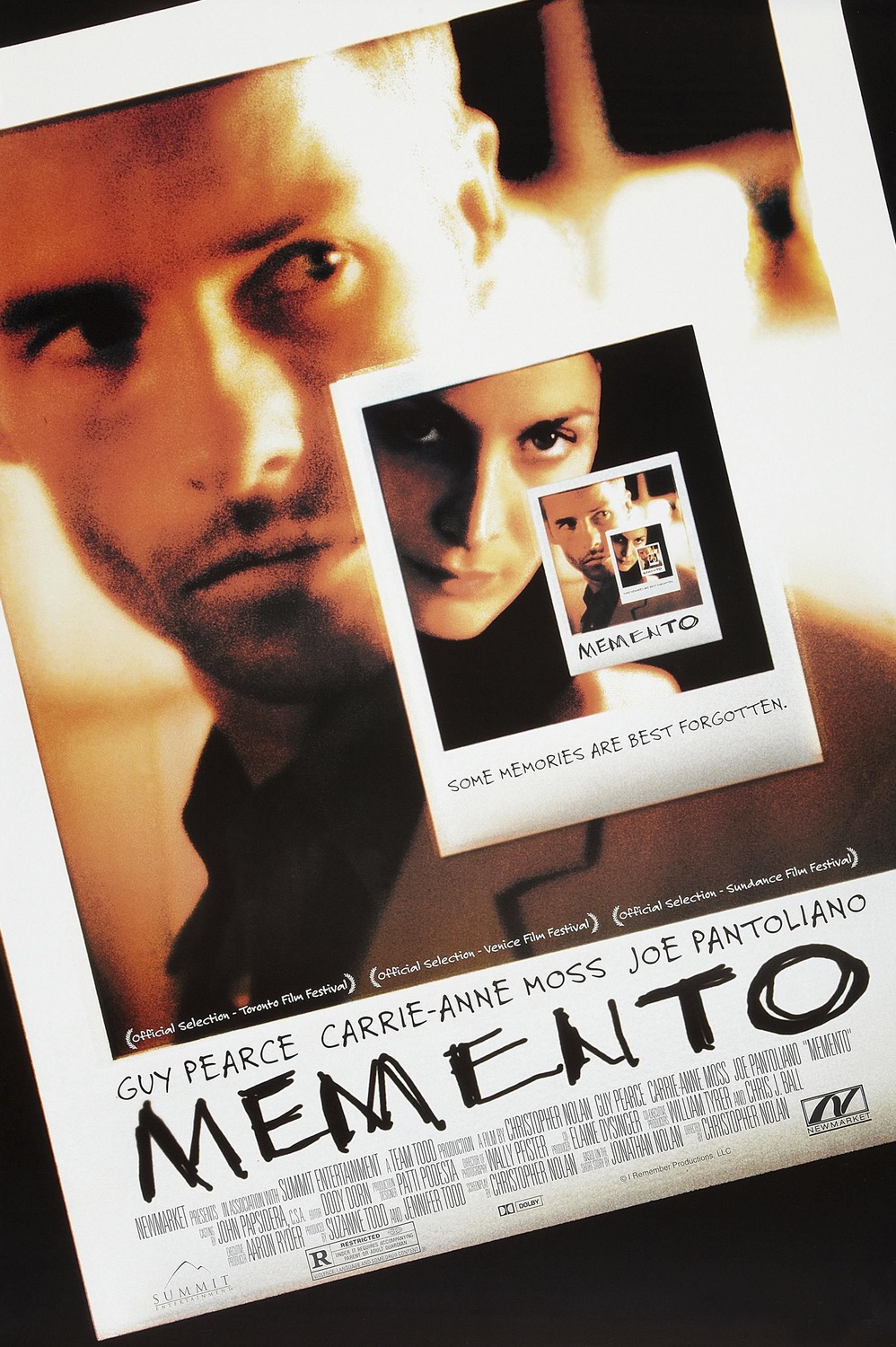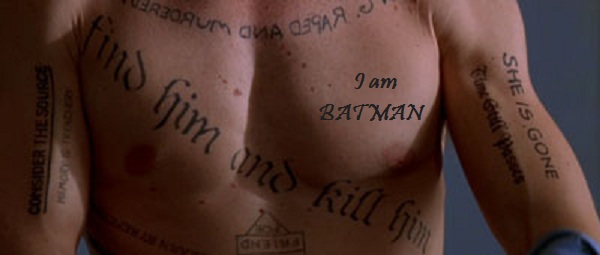 |
| Fig 1. |
Christopher Nolan's Memento (2000) is a complex film that explores the use of story telling within a film. It consists of two different sequences one being black and white that is shown in order and the other in colour that is shown in reverse order these then meet to reveal to overall story at the very end. Memento is a film that is shown from Leonard's perspective and he is a sufferer of short term memory loss that he sustained after his wife's murder. He can now only live by taking Polaroid images and getting tattoo's on his body to remind of the events or facts that he can use to retrace the murderer of his wife (Fig 2.)
 |
| Fig 2. |
Memento (2000) is a physiological film leads the audience into the mind of Leonard who has short term memory loss. It represents Leonard's disorientation quite brilliantly with the use of editing throughout the film this is explained by A. O. Scott in his film review, ''Each scene jumps back in time, and ends where the previous one -- in narrative time, the next one -- began.'' ( A.O. Scott, 2001). Therefore this notion of jumping back in time and telling the story in reverse it gives the audience a sense of what Leonard feels like to have short term memory loss.
One of the great mysteries within the film is how Leonard has managed to get all of his money, a Jaguar car and a tailored name make suit when he has no job and is mentally ill.Throughout the film as an audience member you are always questioning what and who you can rely on to tell the story. In Memento you are consistently lead to believe one thing is correct to then find out that it is not what it is made out to be. This is shown clearly in the scene with Leonard and Natalie when they are in Natalie's flat (Fig 3.). Before this encounter we are lead to believe that she has been beaten up by a drug dealer who wants money for the drugs that he is owed; but after we are shown what really happens between Leonard and Natalie. She was insulting Leonard and says how she is going to use him to do her dirty work and Leonard hit her resulting in the injuries. Consequently we as an audience are questioning what to rely on when trying to figure out the narrative for this film. Angie Errigo talks about the unreliable narrator within her film review, ''Nolan's simple stroke of genius was to add the old literary trick of an unreliable narrator and thereby kick away the last remaining prop an audience could rely upon'' (Errigo, s.d).
| fig 3. |
Illustration List:
Fig 1.[Film Poster] Memento (2000), Directed by Christopher Nolan. At: http://www.impawards.com/2001/memento_xlg.html (Accessed on 10.03.2014)
Fig 2. [Film Still] Memento (2000), Directed by Christopher Nolan.
At: http://alwaysbatman.files.wordpress.com/2012/05/protectedimage-php.jpg (Accessed on 10.03.2014)
Fig 3. [Film Still] Memento (2000), Directed by Christopher Nolan.
At: http://movieimage1.tripod.com/memento/memento11.jpg(Accessed on 10.03.2014)
Bibliography:
A.O. Scott (2001), Film Review; Backward Reel the Grisly Memories
At: http://www.nytimes.com/movie/review?res=9E06E5DC173DF935A25750C0A9679C8B63&partner=Rotten%2520Tomatoes (Accessed on 10.03.2014)
Errigo, A. (s.d), Film Review, Memento.
At: http://www.empireonline.com/reviews/ReviewComplete.asp?FID=6255 (Accessed on 10.03.2014)
Ebert, R. (2001), Film Review, Memento.
At: http://www.rogerebert.com/reviews/memento-2001 (Accessed on 10.03.2014)

It sounds like you enjoyed this film Anthony! :)
ReplyDeleteYou say 'This film is more a physiological thriller' - did you mean 'psychological'?
ahhh sorry, yeah I did woops :/
Delete